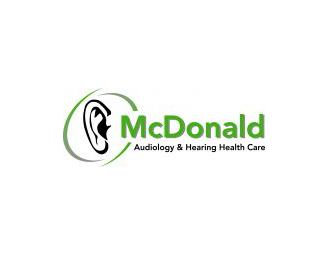Even though many of us remain current with our once-a-year physical, dental cleaning, and eye examination, we typically forget to give consideration to the well-being of our hearing. And when our hearing does begin to diminish, it develops so slowly and gradually that we scarcely notice and fail to do something about it. It’s this lack of interaction with hearing care professionals that makes people curious to know what the profession actually involves.
And that’s a shame, because hearing care professionals represent a significant component of the healthcare system. It’s through the hearing care professional that the proper performance of one of our principal senses — one for which we have a tendency to take for granted — is preserved or repaired.
Considering the fact that we take hearing for granted, we often fail to keep in mind just how critical hearing is. With accurate hearing, we can improve concentration, savor the details of sound, converse better, and strengthen relationships. And the hearing care professionals are the ones who make certain that this key sense is functioning efficiently.
If you’d like to find out more about this crucial but little-known healthcare field — or if you’re considering entering the field yourself — read on.
Attraction to the hearing care field
Hearing care professionals are attracted to the field for a number of reasons, but a couple different principal motivating factors are consistently present. First of all, several practitioners have experienced, and continue to suffer with, hearing issues themselves. Due to the fact that they were themselves helped by a hearing care professional, the impulse to return the favor for other people is powerful.
As an example, Zoe Williams, a hearing care professional practicing in Australia, has moderate to profound hearing loss in both ears. This could have resulted in an inability to communicate, but thanks to cochlear implants and hearing aids, Zoe is currently able to communicate normally. Knowing from experience how healthier hearing leads to a much better life, Zoe was inspired to enter the field and to help others in a similar manner.
Other practitioners are enticed into the hearing care field owing to its distinctive blend of counseling, problem solving, science, and technology. In combination with learning about the science of hearing and the engineering of hearing technology, practitioners also learn how to work with people in the role of a counselor. Dealing with hearing loss is a delicate matter, and people present a number of emotions and personalities. Practitioners must be able to use the “soft skills” needed to deal with these difficulties and must work with patients on a personalized level to beat hearing loss.
Training and preparation
Part of the overall appeal of working in the hearing care profession is the compelling combination of subjects covered as part of the schooling and training. Those pursuing a career in the field learn fascinating topics in numerous fields such as:
- Biology – topics include the anatomy and physiology of hearing, balance, the ear, and the brain, in addition to instruction in hearing and balance disorders and pharmacology.
- Physics – topics include the physics of sound, acoustics, and psychoacoustics (how the brain processes sound).
- Engineering – topics include the design and functioning of hearing technology such as assistive listening devices, hearing aids, and cochlear implants, as well as the programming of digital hearing aids.
- Counseling – topics include how to interview patients, how to teach coping skills, and how to train on the use of hearing aids, along with other fascinating topics in psychology and counseling.
- Professional practice – topics include diagnosing hearing problems, carrying out and interpreting hearing tests, employing hearing treatments, fitting and programming hearing aids, professional ethics, and running a business.
Job functions
Hearing care professionals work in a number of of settings (schools, hospitals, private practices) performing varied tasks such as research, teaching, and diagnosing and treating hearing and balance problems.
Everyday duties include conducting diagnostic tests, interpreting hearing tests, and working with patients on determining the optimum hearing treatment, in many cases including the use of hearing aids. Hearing care professionals custom-fit and program hearing aids to best match the individual and will train the patient on how to use and maintain them. Hearing care professionals also work with employers and businesses to prevent hearing injuries in noisy work conditions.
Benefits
The benefits offered most regularly by people in the hearing care profession revolve around the power to favorably impact people’s lives on a very personalized level. Long term friendships between patients and hearing specialists are also typical because of the personal nature of care.
When patients announce that they can hear again for the first time in a very long time, the emotions can be overwhelming. Patients oftentimes report a sense of reconnection to the world and to family, along with strengthened relationships and an improved overall quality of life.
How many vocations can claim that kind of personal impact?

